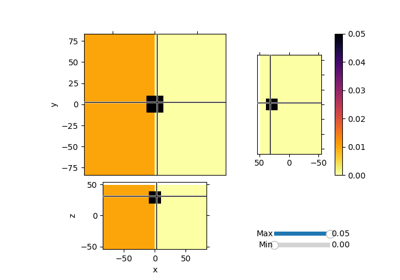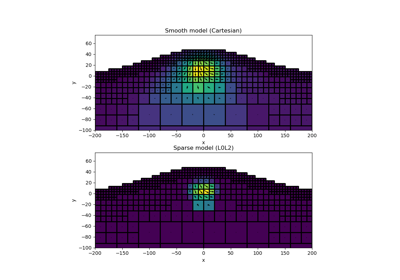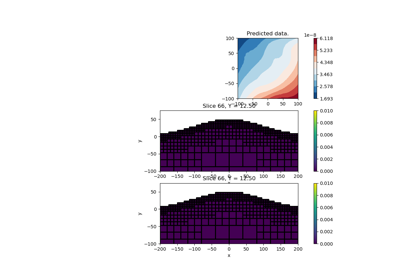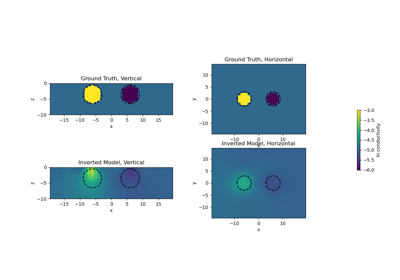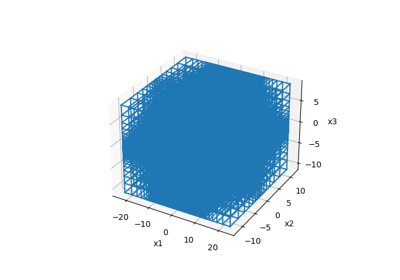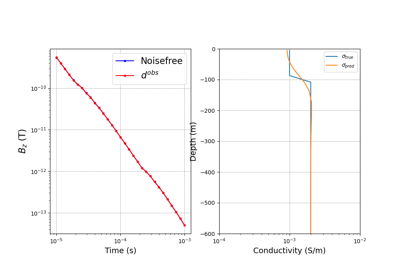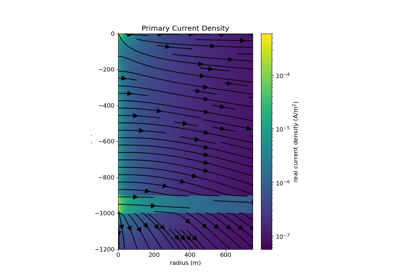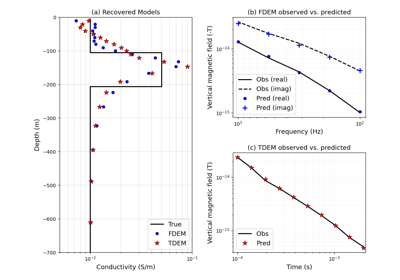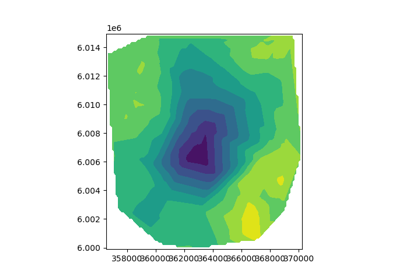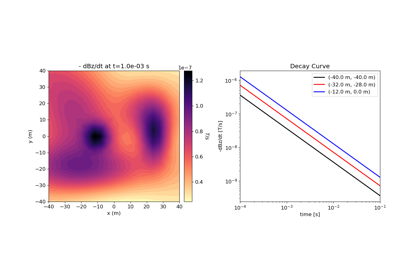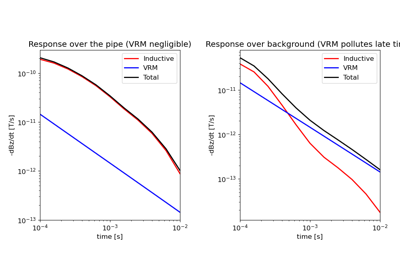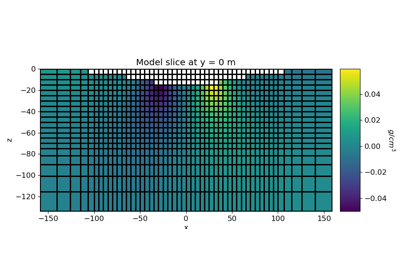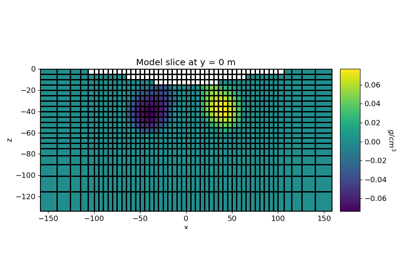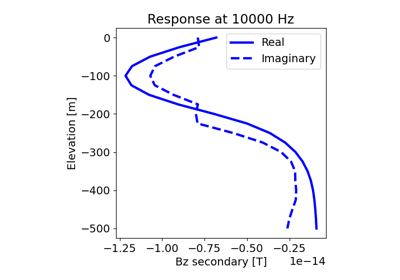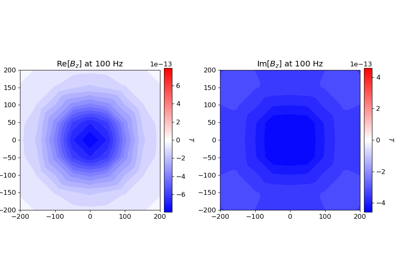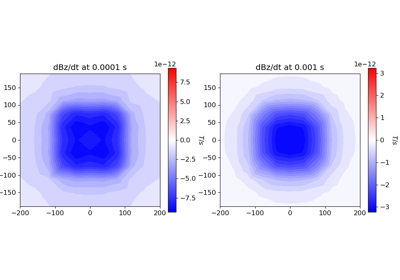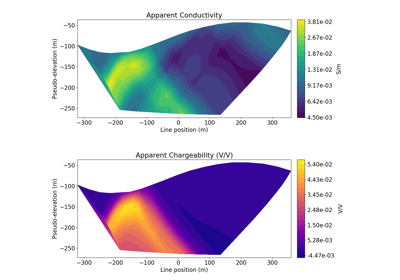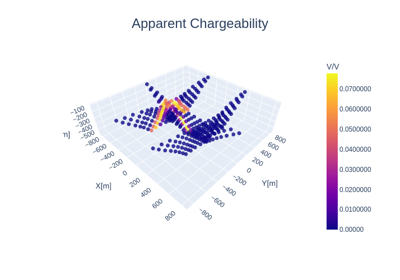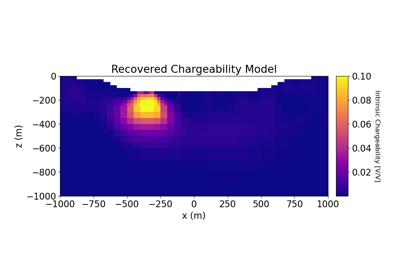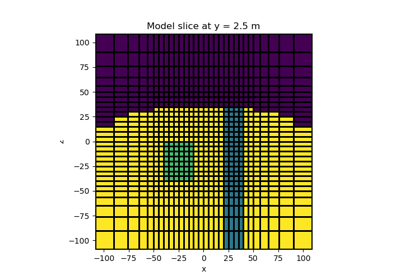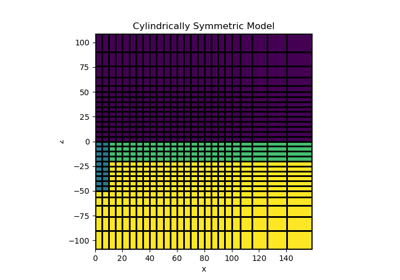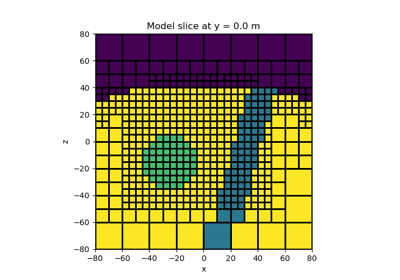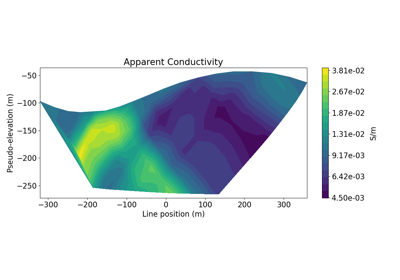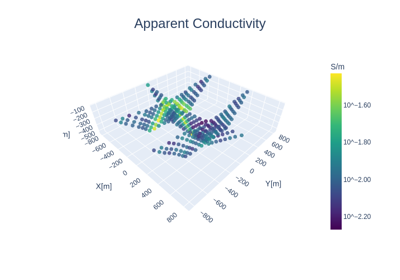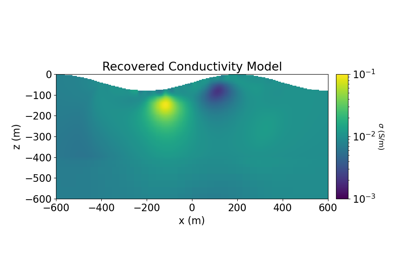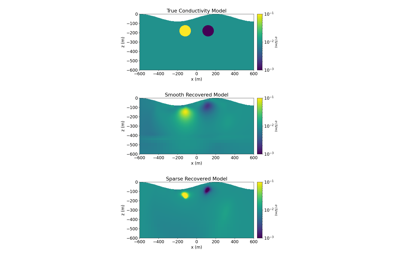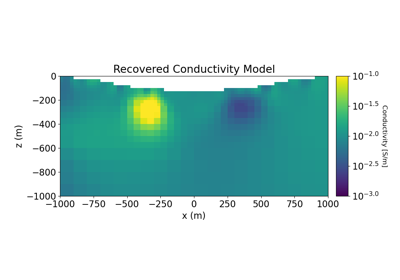simpeg.maps.InjectActiveCells#
- class simpeg.maps.InjectActiveCells(mesh, indActive=None, valInactive=0.0, nC=None)[source]#
Bases:
IdentityMapMap active cells model to all cell of a mesh.
The
InjectActiveCellsclass is used to define the mapping when the model consists of physical property values for a set of active mesh cells; e.g. cells below topography. For a discrete set of model parameters \(\mathbf{m}\) defined on a set of active cells, the mapping \(\mathbf{u}(\mathbf{m})\) is defined as:\[\mathbf{u}(\mathbf{m}) = \mathbf{Pm} + \mathbf{d}\, m_\perp\]where \(\mathbf{P}\) is a (nC , nP) projection matrix from active cells to all mesh cells, and \(\mathbf{d}\) is a (nC , 1) matrix that projects the inactive cell value \(m_\perp\) to all inactive mesh cells.
- Parameters:
- mesh
discretize.BaseMesh A discretize mesh
- indActive
numpy.ndarray Active cells array. Can be a boolean
numpy.ndarrayof length mesh.nC or anumpy.ndarrayofintcontaining the indices of the active cells.- valInactive
floatornumpy.ndarray The physical property value assigned to all inactive cells in the mesh
- mesh
Attributes
- Returns:
Determine whether or not this mapping is a linear operation.
The mesh used for the mapping
Number of parameters the model acts on.
Dimensions of the mapping
The physical property value assigned to all inactive cells in the mesh.
Methods
deriv(m[, v])Derivative of the mapping with respect to the input parameters.
dot(map1)Multiply two mappings to create a
simpeg.maps.ComboMap.inverse(u)Recover the model parameters (active cells) from a set of physical property values defined on the entire mesh.
test([m, num, random_seed])Derivative test for the mapping.
Galleries and Tutorials using simpeg.maps.InjectActiveCells#

Predict Response from a Conductive and Magnetically Viscous Earth
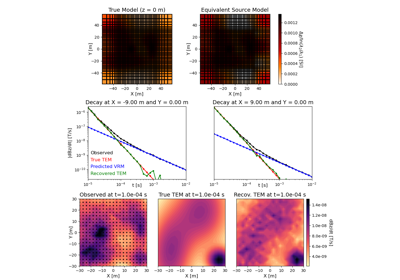
Method of Equivalent Sources for Removing VRM Responses

Heagy et al., 2017 1D RESOLVE and SkyTEM Bookpurnong Inversions
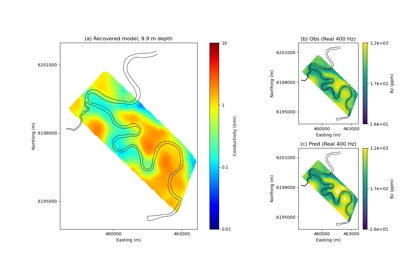
Heagy et al., 2017 1D RESOLVE Bookpurnong Inversion
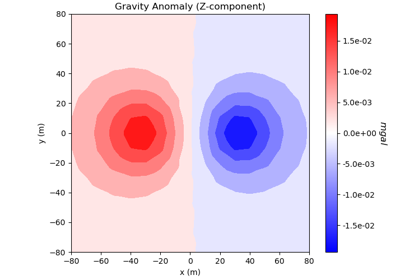
Forward Simulation of Gravity Anomaly Data on a Tensor Mesh
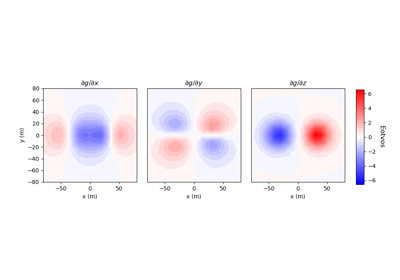
Forward Simulation of Gradiometry Data on a Tree Mesh

Joint PGI of Gravity + Magnetic on an Octree mesh using full petrophysical information

Joint PGI of Gravity + Magnetic on an Octree mesh without petrophysical information
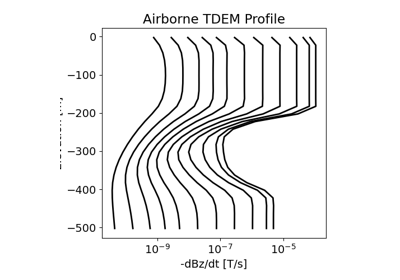
3D Forward Simulation for Transient Response on a Cylindrical Mesh
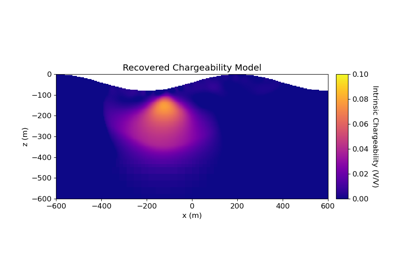
2.5D DC Resistivity and IP Least-Squares Inversion
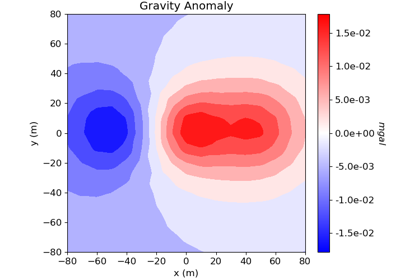
Cross-gradient Joint Inversion of Gravity and Magnetic Anomaly Data
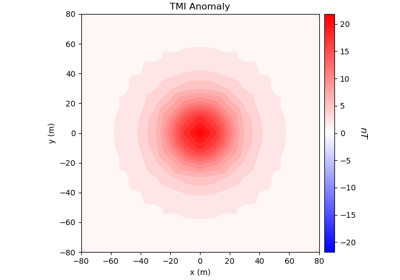
Forward Simulation of Total Magnetic Intensity Data
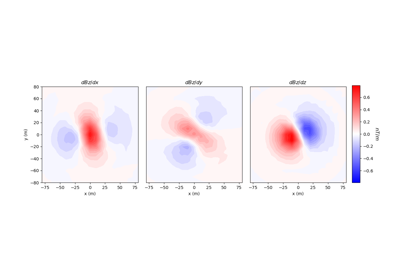
Forward Simulation of Gradiometry Data for Magnetic Vector Models
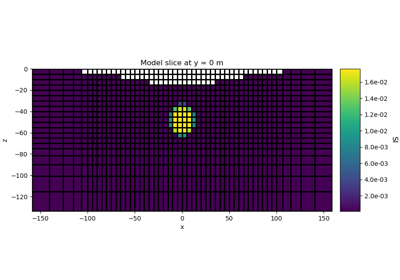
Sparse Norm Inversion for Total Magnetic Intensity Data on a Tensor Mesh
